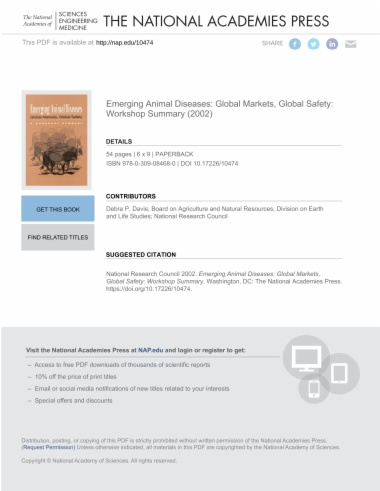

Recent outbreaks of foot-and-mouth disease (FMD) and bovine spongiform encephalopathy (BSE) in Europe and Japan set off alarm bells in the United States and other nations, prompting a flurry of new regulations, border controls, inspections, and other activities to prevent incursions of the diseases. The terrorist attacks in New York City and Washington, DC, added a new note of urgency to the alarm. Concerned about additional acts of terror or sabotage in various sectors of the economy, including agriculture, U.S. government and industry officials have begun to reevaluate emergency management plans in response to these threats and to shift the focus of research and planning.
More than 200 representatives of government, industry, academia, and nongovernmental organizations gathered at a one-day workshop in Washington, DC, on January 15, 2002, to assess what the United States is doing about emerging animal diseases and related issues and to explore what still needs to be done. Major objectives of the workshop include: (1) elucidating information on the U.S. position with regard to potentially threatening animal diseases; (2) identifying critical problems, barriers, and data gaps; and (3) defining potential future National Academies' activities.
Emerging Animal Diseases describes the issues presented and discussed by the workshop participants. This report summary extracts the key technical issues from the presentations and discussions, rather than presenting each session and panel discussion separately. Many issues were touched upon repeatedly by several speakers in different sessions, and this format is intended to allow readers who did not attend the workshop to have a good understanding of the discussions in the context of the entire workshop.